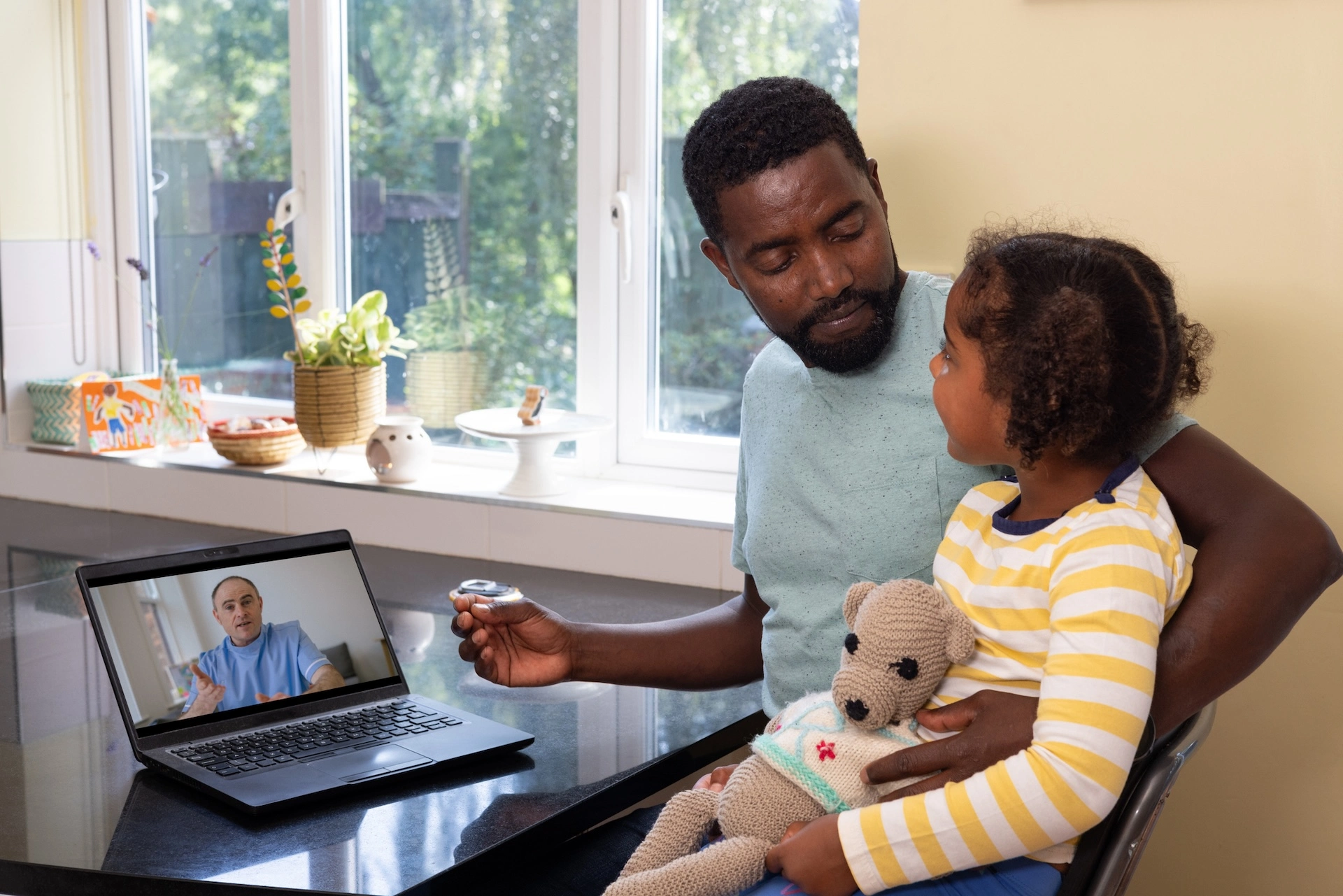Children receiving measles-containing vaccines at 12-15 months of age have a lower increased risk of fever and seizures than those who receive them at 16-23 months of age, according to a new Kaiser Permanente study published in JAMA Pediatrics.
The Centers for Disease Control and Prevention recommends a two-dose series of measles-containing vaccines, with the first dose administered at 12-15 months and the second dose at 4-6 years of age. Most children receive their first dose of a measles-containing vaccine between the ages of 12 and 23 months; approximately 85 percent of children receive it by 19 months of age. The study found that receiving the first dose by 15 months provides a benefit to children.
“We found that the magnitude of increased risk of fever and seizures following immunization with measles-containing vaccines during the second year of life depends on age,” said Ali Rowhani-Rahbar, MD, MPH, PhD, lead author of the study. “While measles-containing vaccines administered at 12-15 months of age are associated with a small risk of fever and seizures following immunization, delayed administration at 16-23 months of age results in a greater risk of those adverse events.”
Previous studies have shown that these vaccines administered to children 12-23 months of age are associated with an increased risk of febrile seizures one to two weeks following immunization. This is the period of time during which the vaccine virus replication is at its peak, potentially causing fever. The resulting fever may cause some children to experience a seizure.
“Kaiser Permanente’s guidelines for measles-containing vaccines are in line with the CDC’s recommendations,” said Matthew F. Daley, MD, a pediatrician and senior investigator at Kaiser Permanente Colorado’s Institute for Health Research. “This study’s findings reinforce for parents that these vaccines are safer when children receive them at 12 to 15 months of age.”
While febrile seizures are the most common neurologic adverse events following immunization with measles-containing vaccines, senior author and co-director of the Vaccine Study Center Nicola Klein, MD, PhD, notes that the risk is small regardless of age: “Medically attended febrile seizures following immunization with measles-containing vaccines are not common events. Concerned parents should understand that the risk for febrile seizures after any measles-containing vaccine is low — less than one febrile seizure per 1,000 injections.”
Using data from the Vaccine Safety Datalink, a collaborative effort of the Centers for Disease Control and Prevention and nine managed care organizations, Kaiser Permanente researchers evaluated the potential modifying effect of age on the risk of fever and seizures following immunization with different combinations of vaccines: 1) any measles-containing vaccines; and 2) the measles, mumps, rubella and varicella vaccine (MMRV) compared with the measles, mumps and rubella vaccine (MMR) administered with or without a separate varicella vaccine (MMR+V). Researchers evaluated the records of 840,348 children 12-23 months of age who had received a measles-containing vaccine between January 2001 and December 2011.
Following immunization with any measles-containing vaccine, the incidence of fever and seizures during days 7-10 was significantly greater than any other time during the 42-day post-immunization interval in all age groups. The patterns for the incidence of fever and seizures were different during the period of observation.
- The incidence of fever steadily declined from 12-13 to 19-23 months of age, while the incidence of seizures was highest among children 16-18 months of age.
- The relative risk of fever and seizures during the 7- to 10-day risk interval was significantly greater among children 16-23 months of age than among children 12-15 months of age.
- The risk of seizures attributable to the vaccine during the 7- to 10-day risk interval was significantly greater among children 16-23 months of age than among children 12-15 months of age.
Consistent with findings in previous studies, the incidence of fever and seizures during the 7-10 days following immunization with MMRV was significantly greater than that following immunization with MMR+V.
Additional authors on the study include Bruce Fireman, MA, Edwin Lewis, MPH, and Roger Baxter, MD, of the Kaiser Permanente Vaccine Study Center, Oakland, California; James Nordin, MD, MPH, of HealthPartners Institute for Education and Research, Minneapolis; Allison Naleway, PhD, of Kaiser Permanente Center for Health Research, Portland, Oregon; Steven J. Jacobsen, MD, PhD, of Kaiser Permanente Department of Research and Evaluation, Pasadena, California; Lisa A. Jackson, MD, MPH, of Group Health Research Institute, Seattle; Alison Tse, ScD, of Department of Population Medicine, Harvard Pilgrim Health Care Institute, Boston; Edward A. Belongia, MD, of Marshfield Clinic Research Foundation, Marshfield, Wisconsin; Simon J. Hambidge, MD, PhD, of Kaiser Permanente Institute for Health Research, Denver; and Eric Weintraub, MPH, of the Immunization Safety Office, Centers for Disease Control and Prevention, Atlanta.





Comments (0)